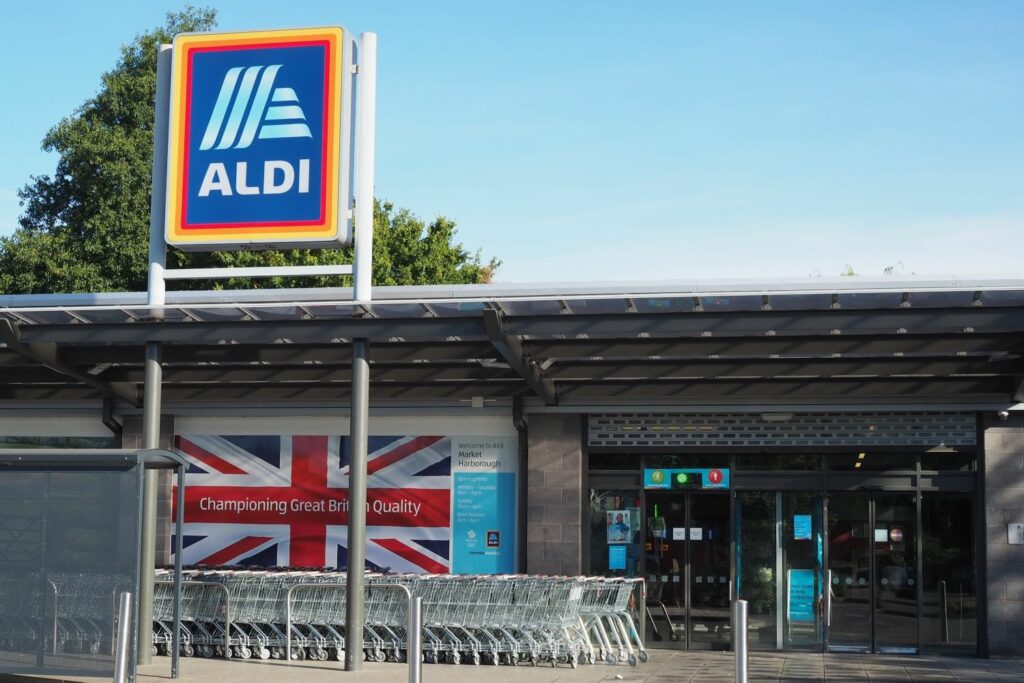Industry dismayed over Aldi’s decision to stock New Zealand lamb
23rd February 2023
An uproar among both farmers and farming organisations followed Aldi’s decision to abandon its longstanding pledge to only stock meat reared on British farms, with the consensus being the move couldn’t have come at a worse time for lamb producers.

Amid the extreme inflation of input costs, a large surplus of lamb on British farms, and meat prices being down by 13% compared to the same week last year, now is the time to champion British produce, said National Sheep Association (NSA) chief executive Phil Stocker.
“NSA was disappointed to hear the announcement by Aldi that it is dropping support for British-produced lamb and beef, following hot on the heels of the irresponsible suggestion by John Allan, Tesco Chair, that food producers are taking advantage of the poor in society by pushing up food costs.
“This air of negativity is not good for any part of the supply chain and reflects particularly poorly on retailers.”
Other than Aldi, Tesco, Sainsbury’s and Asda are also known for stocking fresh and/or frozen meat from outside the UK, while Waitrose, Morrisons and the Co-op are continuing to stand by their pledge to back British farming.
Mr Stocker stressed that producers at the beginning of the supply chain need support from everyone involved as red meat is costing more than ever to produce, and retailers have a key role to play.
“We also need a showcase on every supermarket shelf for lamb and other products produced in the UK. To see one retailer imply that costs have been artificially inflated, and another remove its support for UK-produced product at this volatile time is extremely concerning.”
Due to the large carryover of livestock into 2023, there is ample supply of lamb at the present time, and lamb production is expected to be 8-9% higher this year according to the AHDB.
With British lamb being one of the most sustainable products in the world with some of the highest welfare standards, Mr Stocker is disappointed to see the “blatant disregard some large retailers have for British produce”.
“The agricultural industry is combating a period of extreme and unprecedented volatility within the marketplace, supply chains and input costs. Now is the time to champion British – and NSA applauds the retailers that are stepping up and doing the right thing,” he remarked.
Echoing his words, NFU president minette Batters also applauded the credentials of British lamb and criticised Aldi for filling shelves with high-carbon footprint goods.
“Aldi has prided itself on 100% British sourcing on fresh meat, so British sheep farmers, and many shoppers who want to buy locally produced lamb, will be dismayed to see them backtrack on their long-term commitments on lamb sourcing.
“It is especially disappointing that home-grown, climate-friendly lamb will be replaced by products with significant food miles.”
Moreover, Ms Batters also pointed out the situation puts farmers in a difficult position.
“Lamb production isn’t a tap that can just be turned off and this is coming at a time when the sector is already under huge pressure with inflationary costs and policy uncertainty.”
“Aldi UK – there is no need to import New Zealand lamb!”
Sheep farmer Clare Wimmers of Little Walterstone Farm in Gower, Swansea, was extremely distressed to find out about Aldi’s decision to stock New Zealand lamb. She wrote on social media:
“Aldi UK decision to break its pledge to stock ONLY fresh British Lamb is extremely distressing news for British farmers. With the loss of EU grants spiralling prices of animal feed, production cost rising daily this decision couldn’t come at a worse time.
“According to Google, in 2021 the UK is made up of 216,000 farm holdings. We here at Little Walterstone Farm still have lambs left over from last year as we’ve been waiting for the price to rise before we give them away in the market. Say if each farm had only 10 of last years lambs left now this totals to 2,160,000. That’s before this season has even started….”
She went on to condemn Aldi’s move to bring in New Zealand lamb and called on shoppers to start eating food produced in Britain rather than “inferior imports”.
Commenting on the news, Neil Darwent, founder of the small family farming network Produce & Provide, wrote on Twitter:
“Disappointed to see Aldi going back on their 100% British pledge on lamb and other meat sold in their stores.
“If you want to back British farmers buy direct from farms. Check out the Produce & Provide website map to find them.”
Yet others added to the noise by condemning retailers for relying on cheap import produce on social media. First generation tenant farmer Matthew Blair, farming beef and sheep at Thrimby, Cumbria, wrote on Twitter:

Another farmer, Mathew Robers from North Wales, praised retailers that are still backing British farmers amid the industry-wide crisis:

To quieten the waters, Aldi reiterated its support for British farming and said the majority of its lamb will continue to be sourced from British farms.
An Aldi spokesperson said: “Aldi is a major supporter of British farming and we have committed to invest an additional £3.5bn a year with British suppliers by the end of 2025. This move aims to support customers during the cost-of-living crisis by offering affordable and in-season lamb all year round.”
Aldi’s core range of fresh beef, pork, poultry, milk and eggs will continue to be sourced from British, Red Tractor or Lion Eggs approved farms, the retailer said. Lamb mince will also remain 100% British all year round, while core range leg steaks, half legs and lamb chops will include New Zealand bought lamb in season.
The retailer added that all New Zealand lamb products will be clearly labelled with the flag prominently displayed to communicate the country of origin to the customer.

